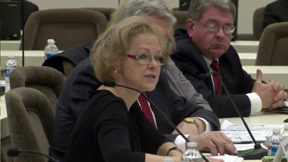
RALEIGH, N.C: Meeting deadlines set by federal regulators to eliminate North Carolina’s backlog of food stamp applications still came with a cost to state and local governments.
State health officials told legislators it cost $14 million for counties and $7 million for the state to address the backlog and issues related to a new computer system called NC FAST that counties use to determine service eligibility.
Social Services Director Wayne Black said county money paid staff, overtime pay and equipment upgrades. Dr. Aldona Wos, secretary of the Department of Health and Human Services, said the state helped counties with staffing and support to whittle down the waiting lists.
The state faced losing $88 million if tens of thousands of applications pending at first for at least 90 days weren’t processed, and later for those waiting at least 30 days. The U.S. Department of Agriculture told DHHS this week it was satisfied with the state’s work.
The federal health care overhaul law caused the backlog and the expense to clear it, said Angela Taylor, the acting director of NC FAST. The law required a new computer software update for Medicaid last July 15 before the state had planned to add it, as well as additional Medicaid eligibility questions that county social service workers must ask of applicants, according to Taylor.
Now there are nearly 86,000 Medicaid applications delayed beyond federal processing timelines, acting state Medicaid Director Sandy Terrell told the Joint Legislative Oversight Committee on Health and Human Services. More than 26,000 of these applications came from the federal health care insurance website, while about 31,000 more are delayed due to a new method to determine income eligibility.
The state has received 95,000 Medicaid applications through the federal health care law since October, and the number is likely to grow, Terrell said.
The state government budget approved by legislators last summer through mid-2015 prepared to pay for the state’s share of additional enrollees of people who signed up through the health care law. But lawmakers questioned whether the number may be higher than planned.-AP






